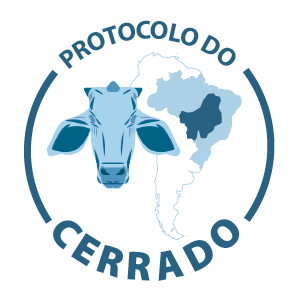About the Voluntary Monitoring Protocol for Cattle Suppliers in the Cerrado
Several downstream companies sourcing cattle products from the Brazilian Cerrado have started to design responsible sourcing strategies to avoid purchases linked with social and environmental issues in the region.
However, despite companies making pledges to conserve the biome, there was a lack of alignment on how to operationalise this in the beef sector. There was no harmonised protocol for slaughterhouses to analyse cattle purchases in the Cerrado yet, as there is for the Amazon.
Building on Imaflora’s experience in the harmonisation of the Amazon Protocol and on Proforest’s experience designing and helping implement beef sourcing policies in the Cerrado, Proforest and Imaflora have partnered together to organise the basis for the construction of a voluntary monitoring protocol for cattle suppliers in the Cerrado Biome.
Why is responsible sourcing of cattle in the Cerrado biome important?
The Cerrado biome is under increased scrutiny internationally, given the significant expansion of pasture and large-scale agricultural production over native vegetation over the last four decades.1
The biome is the world’s most biodiverse savannah2 and where eight of the country’s twelve river basins are located,3 playing an important role for the provision of crucial ecosystem services, such as supporting Brazil’s water cycle.
Cattle ranching activities in particular have been associated with native vegetation conversion in the region, as most of the cleared areas become pasture.4
Social issues such as land conflicts5 and forced labour are also associated with cattle ranching in the biome: according to data from the federal government systematised by the Comissão Pastoral da Terra (CPT), more than half of slave labour cases flagged in Brazil from 1995 to 2020 occurred in activities related to cattle ranching.6
To whom and how this voluntary protocol could be applied
Direct cattle suppliers:
could be used to provide the necessary information on the meatpackers for compliance analysis and/or unlocking and/or reintegration.
Meatpackers:
could apply when purchasing cattle from their direct cattle supplier
Investors:
could be used as a minimum requirement to be monitored under ESG agendas for new investments to companies linked with cattle supply chains in Brazil.
Downstream companies:
could be used to require the application of the protocol with their cattle product suppliers.






